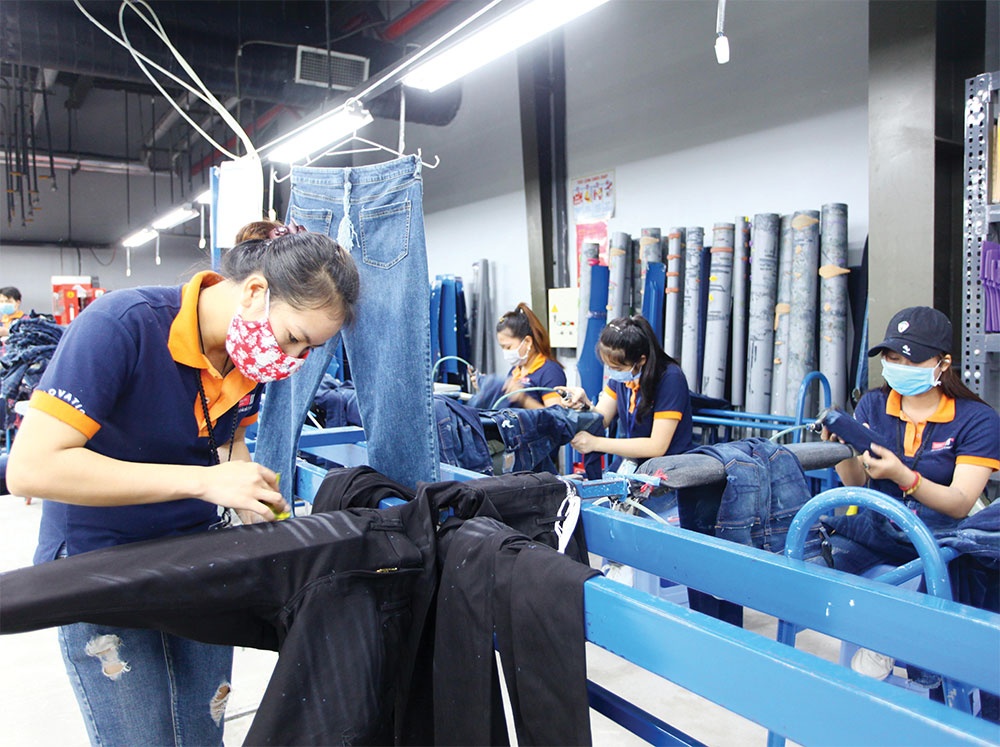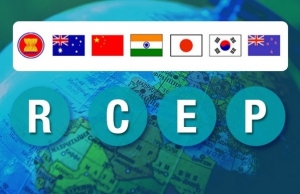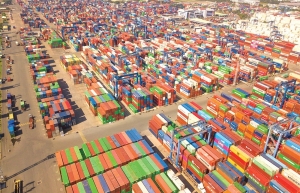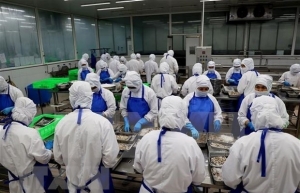RCEP effectiveness measures to benefit Vietnam
In July, ASEAN chair Indonesia will organise events on boosting the implementation of the agreement (RCEP). At the fourth RCEP Joint Committee, member states will debate how it has and will continue helping member states and the bloc’s partners to further cement trade and investment ties.
 |
| RCEP effectiveness measures to benefit Vietnam, photo Le Toan |
Then in September at the RCEP Summit, a review of implementation will be conducted, with member states set to agree on new measures to boost trade and investment flows.
Amid difficulties caused by geopolitical tensions, ASEAN is considering the RCEP as a major tool to further tighten trade ties.
Inked in November 2020 by the 10 ASEAN member states and five other nations, the RCEP has entered into force for all except Myanmar and Indonesia. The deal is expected to become valid for the latter in June.
The Vietnamese government has tasked authorised agencies to work out action plans to take advantage of the agreement’s benefits.
Under its rules, member states commit to removing 87.8-98.3 per cent of tariff lines for Vietnam under a roadmap, and ASEAN countries pledge to do that with 85.9-100 per cent of tariff lines. The longest roadmap for tariff elimination is 15-20 years from when the RCEP became valid.
Fitch Solutions noted that for Vietnam, major export categories that are expected to benefit include agriculture, footwear, automobiles, IT, and telecommunications.
As Vietnam moves to become a high-tech manufacturer, the RCEP can help local businesses raise exports and attract high-quality goods. Furthermore, Vietnam is set to benefit from growing demands for its exports like agriculture and fisheries products.
Moreover, the simplification of procedures such as customs and rules of origin (ROO) will help allow more small- and medium-sized enterprises to participate. They account for 98 per cent of all enterprises in Vietnam, contributing to 40 per cent of GDP, and thus the RCEP presents significant opportunities for them to move up the value chain.
“For investors operating across ASEAN, China, and other regions, the RCEP offers good news. Streamlined customs procedures, unified ROO, and improved market access will make investing in multiple locations a much more viable and attractive funding strategy and likely bring China+ 1 business models to the fore,” said pan-Asia consultancy firm Dezan Shira & Associates in a RCEP report.
“The common ROO will lower costs for firms with supply chains that span across Asia and may encourage multinationals to RCEP countries to establish supply chains across the bloc, thus growing the global value chain activity in the region.”
While implementing projects in Vietnam, investors need to import products for production and then export abroad, including to RCEP member states.
“The RCEP has been designed to reduce costs and time for businesses, and the deal allows them to export goods to each member market without having to meet that market’s own requirements,” said Nguyen Thi Thu Trang, director of the Centre for WTO and International Trade under the Vietnam Chamber of Commerce and Industry. “This will help investors increase activity in Vietnam.”
“For instance, for the Comprehensive and Progressive Agreement for Trans-Pacific Partnership, businesses from Vietnam will find it difficult to take advantage of tariff incentives for their garments and textiles due to tough requirements in ROO applied commonly within the bloc because almost all materials Vietnam need are imported from China, which is not a member,” Trang said. “However, for the RCEP, to which China is a member, the burden of import costs for input materials will be reduced thanks to tariff incentives.”
Figures from the Ministry of Planning and Investment showed that accumulatively as of March 20, registered capital into Vietnam from South Korea sat at $81.52 billion, Singapore $72.5 billion, Japan $69.4 billion, China $23.85 billion, Thailand $13.1 billion, Malaysia $13 billion, and Indonesia $642 million.
Commenting on Vietnam-Malaysia trade and investment ties under positive impacts of free trade agreements, Suhaili Ismail, economic counsellor at the Malaysian Embassy to Vietnam, said, “Malaysia is keen to work with Vietnamese companies in sectors such as ICT services, renewable energy, education, the creative industry, financial services, private healthcare services, tourism industry, retail trade, and halal services.”
Vietnam is part of wide-ranging trade deals that create the biggest markets and regional supply chains in the world, Ismail added. “This demonstrates how Vietnam has evolved into an attractive trade destination.”
Denny Abdi, Indonesian Ambassador to Vietnam, also highlighted cooperation fuelled by deals like the RCEP. “Indonesia considers Vietnam’s position as strategic for the enhancement of mutually beneficial economic cooperation. Foreign investments play a significant role in driving economic growth and development. The inflow of capital and expertise leads to jobs creation, stimulating economic activity, and improving the overall business environment. Indonesian investors are keen to seize opportunities in Vietnam,” Abdi said.
 | Long-term gains on horizon for Vietnam via RCEP The application of favourable conditions for rules of origin within the Regional Comprehensive Economic Partnership is expected to benefit Vietnam’s trade performance and enable the country to participate more deeply in the regional supply chain. |
 | RCEP boosting like-minded vision among bloc members With one-year entry into force of a regional trade deal, ASEAN is expecting to boost further investment and trade cooperation. In this landscape, Vietnam is becoming a top destination for regional partners. |
 | RCEP creates new impetus for regional economic development Since it entered into force in early 2022, the Regional Comprehensive Economic Partnership (RCEP) has helped strongly promote integration of value and supply chains, strengthen confidence in regional economic recovery and create new impetus for trade and investment growth in the region and the world, according to an article on the Zhongguopinglun (China review) website of Hong Kong (China). |
What the stars mean:
★ Poor ★ ★ Promising ★★★ Good ★★★★ Very good ★★★★★ Exceptional
Related Contents
Latest News
More News
- Hermes joins Long Thanh cargo terminal development (February 04, 2026 | 15:59)
- SCG enhances production and distribution in Vietnam (February 04, 2026 | 08:00)
- UNIVACCO strengthens Asia expansion with Vietnam facility (February 03, 2026 | 08:00)
- Cai Mep Ha Port project wins approval with $1.95bn investment (February 02, 2026 | 16:17)
- Repositioning Vietnam in Asia’s manufacturing race (February 02, 2026 | 16:00)
- Manufacturing growth remains solid in early 2026 (February 02, 2026 | 15:28)
- Navigating venture capital trends across the continent (February 02, 2026 | 14:00)
- Motivations to achieve high growth (February 02, 2026 | 11:00)
- Capacity and regulations among British areas of expertise in IFCs (February 02, 2026 | 09:09)
- Transition underway in German investment across Vietnam (February 02, 2026 | 08:00)

 Tag:
Tag:


















 Mobile Version
Mobile Version